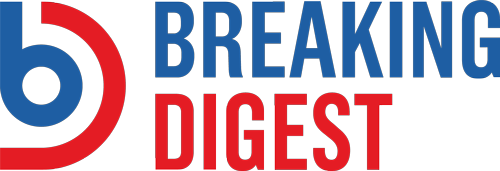
First Republic Bank has collapsed.
On Sunday, regulators seized First Republic Bank, and it was then sold to JP Morgan Chase.
According to reports, the collapse of First Republic Bank is the 2nd largest bank failure in U.S. history.
The collapse of First Republic Bank also means that three of the four largest bank failures in American history have occurred under Joe Biden’s watch.
Silicon Valley Bank and Signature Bank also previously collapsed.
The Federal Deposit Insurance Corporation (FDIC) published a press release:
First Republic Bank, San Francisco, California, was closed today by the California Department of Financial Protection and Innovation, which appointed the Federal Deposit Insurance Corporation (FDIC) as receiver. To protect depositors, the FDIC is entering into a purchase and assumption agreement with JPMorgan Chase Bank, National Association, Columbus, Ohio, to assume all of the deposits and substantially all of the assets of First Republic Bank.
JPMorgan Chase Bank, National Association submitted a bid for all of First Republic Bank’s deposits. As part of the transaction, First Republic Bank’s 84 offices in eight states will reopen as branches of JPMorgan Chase Bank, National Association, today during normal business hours. All depositors of First Republic Bank will become depositors of JPMorgan Chase Bank, National Association, and will have full access to all of their deposits.
Deposits will continue to be insured by the FDIC, and customers do not need to change their banking relationship in order to retain their deposit insurance coverage up to applicable limits. Customers of First Republic Bank should continue to use their existing branch until they receive notice from JPMorgan Chase Bank, National Association, that it has completed systems changes to allow other JPMorgan Chase Bank, National Association, branches to process their accounts as well.
As of April 13, 2023, First Republic Bank had approximately $229.1 billion in total assets and $103.9 billion in total deposits. In addition to assuming all of the deposits, JPMorgan Chase Bank, National Association, agreed to purchase substantially all of First Republic Bank’s assets.
The FDIC and JPMorgan Chase Bank, National Association, are also entering into a loss-share transaction on single family, residential and commercial loans it purchased of the former First Republic Bank. The FDIC as receiver and JPMorgan Chase Bank, National Association, will share in the losses and potential recoveries on the loans covered by the loss–share agreement. The loss–share transaction is projected to maximize recoveries on the assets by keeping them in the private sector. The transaction is also expected to minimize disruptions for loan customers. In addition, JPMorgan Chase Bank, National Association, will assume all Qualified Financial Contracts.
The resolution of First Republic Bank involved a highly competitive bidding process and resulted in a transaction consistent with the least-cost requirements of the Federal Deposit Insurance Act.
The FDIC estimates that the cost to the Deposit Insurance Fund will be about $13 billion. This is an estimate and the final cost will be determined when the FDIC terminates the receivership.
NBC News reported:
First Republic Bank has been taken over by federal regulators and will be sold to JPMorgan — making it the third major bank to go under in less than two months.
The Federal Deposit Insurance Corp. announced simultaneously Monday morning that it had seized the bank and that JPMorgan Chase, the largest bank in America, would be purchasing substantially all of the bank’s assets and deposits.
A spokesperson for the Treasury Department sought to reassure the markets and the public after First Republic, with $229.1 billion in total assets at the time of closure, eclipsed Silicon Valley Bank ($209 billion at the time of closure) to become the second-largest bank failure in American history.
“The banking system remains sound and resilient, and Americans should feel confident in the safety of their deposits and the ability of the banking system to fulfill its essential function of providing credit to businesses and families,” the spokesperson said in a statement.



